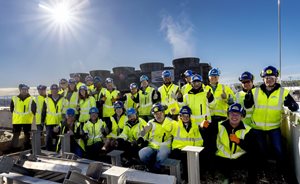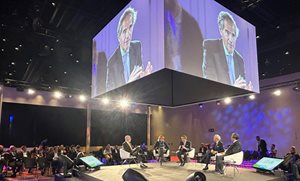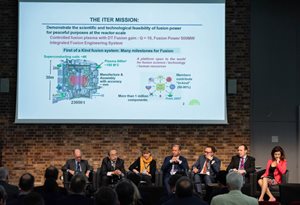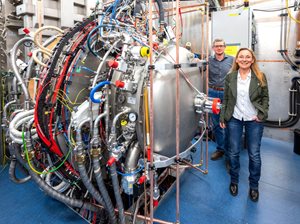ITER NEWSLINE
-
Fusion in Korea
New institute to focus on core reactor technologies
Fusion in Korea | New institute to focus on core reactor technologies
The mission of the new independent research institute is to shift the focus from fundamental fusion energy research to the commercialization of fusion energy and the development of domestic fusion reactor technology.
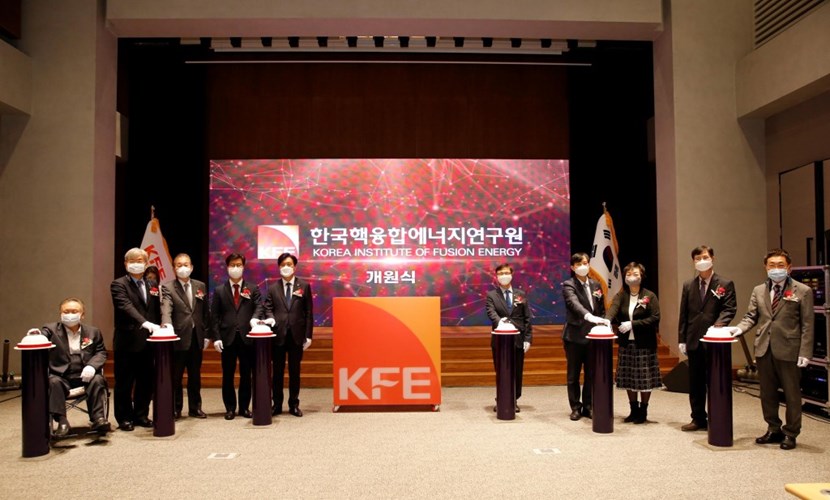
A virtual ceremony on 27 November 2020 was attended by Korea's Vice Minister of the Ministry of Science and ICT and Members of the Korea National Assembly.
Since the 1990s,
fusion research in Korea has been managed by the Korea Basic Science Institute (KBSI). The country joined the ITER Project in 2003 and completed the construction of its flagship superconducting tokamak, KSTAR, in 2007. Until now, the operation of KSTAR, domestic fusion R&D, and participation in ITER have been managed by the National Fusion Research Institute (NFRI), a research institute affiliated with the KBSI.
Now, as the importance of fusion energy development is increasing globally, Korea has established a specialized research institute for fusion-power-oriented R&D through the creation of the Korea Institute of Fusion Energy (KFE), which was promulgated through national law by the Korea National Assembly in May 2020. The new institute replaces the NFRI.
KFE's first president, Suk Jae Yoo, introduced the new institute in comments during a
virtual event held on 27 November. "In the new Korea Institute of Fusion Energy, we will shift our focus from basic research, which we have been conducting as a part of Korea Basic Science Institute, to core technology development that is crucial for commercializing fusion energy. We will also reformulate the goals and visions of the institution and prepare for an R&D framework to develop core technologies to build K-DEMO."
Top-level priorities are the development of key technologies for nuclear fusion power production, the establishment of an innovative virtual research environment taking full advantage of the most recent technologies, and R&D on the safety and regulatory process of a fusion power plant. "For Korea in particular, which relies heavily on overseas energy sources, securing next-generation energy sources that will ensure national stability and development is a goal vital for our generation to achieve." Dr. Yoo also emphasized the importance of collaboration with other research institutes abroad and the country's participation in ITER.
Watch a promotional video here (click on CC for English subtitles).
return to the latest published articles



